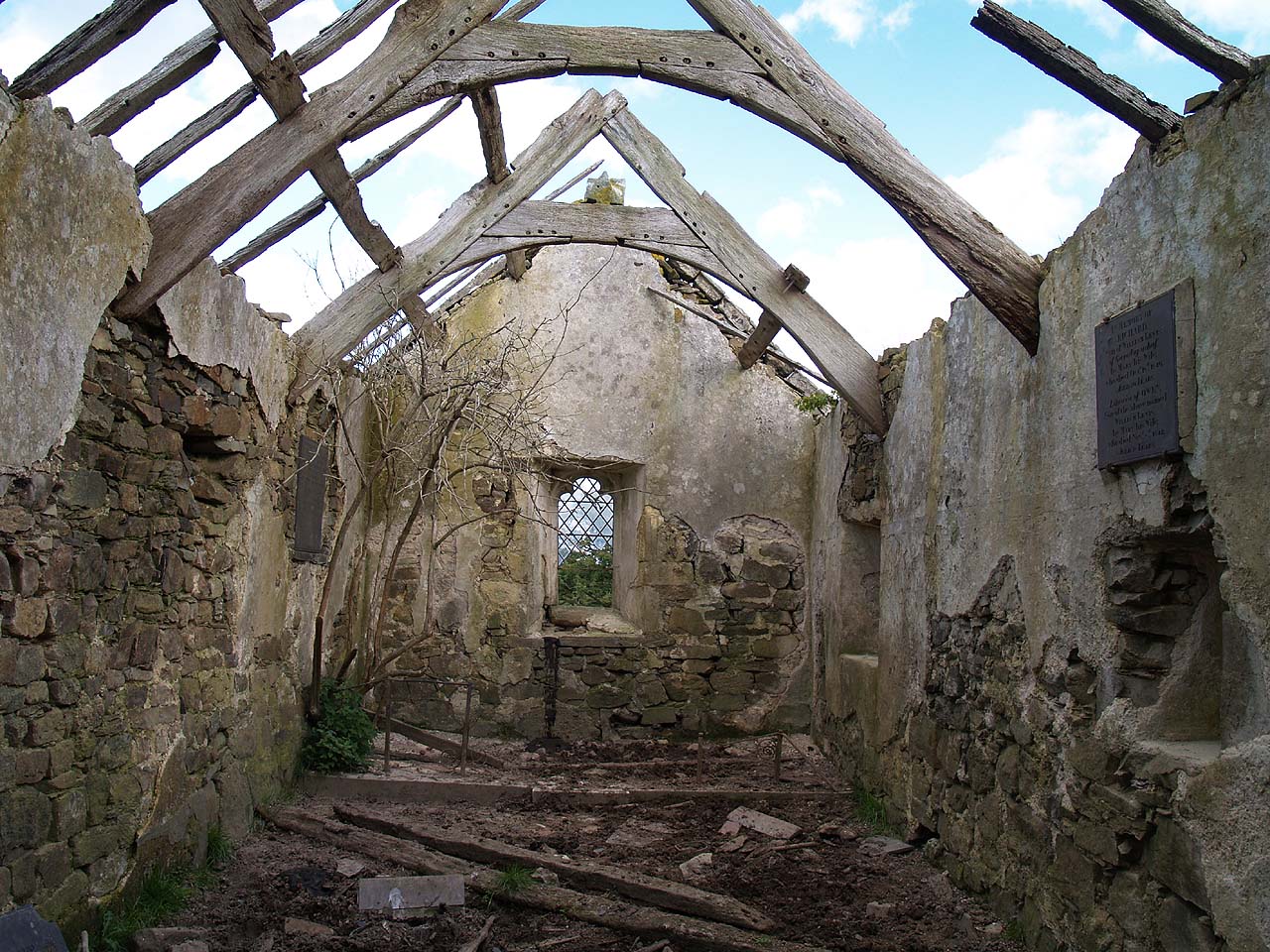 Peace,
Peace,  Repost from March 2014,
Repost from March 2014,  revised
revised  Tuesday, May 31, 2016 at 11:05AM
Tuesday, May 31, 2016 at 11:05AM  Winston Churchill said it first: “Never let a good crisis go to waste.” If you’re trying to manipulate others into action, panic is wonderful ally. Fear issues a standing invitation: everything is an emergency, and we are all going to die.
Winston Churchill said it first: “Never let a good crisis go to waste.” If you’re trying to manipulate others into action, panic is wonderful ally. Fear issues a standing invitation: everything is an emergency, and we are all going to die.
In the marketplaces of politics and consumerism the voices of this age demand attention. Fear sells everything from mouthwash to medicine. Candidates run for political office by cranking the levers of fear. If we do not listen to these voices, they raise their volume to a glass-breaking pitch. Anyone who is not panicking clearly doesn’t understand the situation.
We live in the age of serial crises: elections, government corruption, climate change, financial collapse, Kayne’s latest album. Anyone who isn’t panicking obviously doesn’t understand the situation. There is, however, another voice, a voice that speaks from the age to come, and addresses the fears of this present age. It’s the voice of peace. The voice of God. This voice has been speaking for centuries. This voice walked among us and spoke peace to fear. Here are a few examples:
Professional mourners wail outside the house because a young girl is dead. They excel in giving voice to grief and loss, and why not? It’s all in a day’s work. But Jesus asks, “Why all this commotion?” Instead of death, he sees a sleeping child. This elicits laughter and scorn, the cousins of crisis. In the end, the Lord’s quiet voice reaches the only ears that matter: “Talitha, koum.” The little girl gets up, and has a bite to eat.
There’s a woman tossed down, half-naked, into the dirty street. Around her angry voices cry, “Stone her!” They turn their attention to Jesus, who stoops to street level and presses his finger into the dirt. The voices cry again and again, and demand the Lord’s judgment. But they must quiet down in order to hear his words. His peaceful voice overrules the fearful voice of orthodoxy. Instead it offers peace to every sinner and an invitation to go and sin no more—not out of fear, but from gratitude.
Even the Lord’s closest friends know the songs of panic. When their boat is nearly swamped by wind and waves, they come to Jesus, who is sleeping in the back, resting on a cushion. “Rabbi! Don’t you care if we drown?” And this is the issue: when we choose to enter into crisis it reveals that in our fear and panic we are convinced that God doesn’t care. He doesn’t answer. He’s asleep! What can you do when God is asleep? But what if Jesus, asleep on a cushion, is the word of God to us? What if God is dreaming of better things for us? His inaction is a parable. Finally the Lord awakes and says, “Don’t be afraid, where is your trust?” He wasn’t just asking the disciples in the boat.
The voice of fear cries out for action. It shouts: do something, take up arms, mount your horse and ride! But the man asleep on the cushion lives out the word of God to us: he saw it in the Old Testament: “In repentance and rest is your strength, In quietness and trust is your strength.” He lived these words to the full, and then he gave peace to his friends, like a gift: “Peace I leave with you; my peace I give to you; not as the world gives do I give to you. Do not let your heart be troubled, nor let it be fearful.”
The only question is whether we will receive the Eternal Sabbath, or take up our horses to flee. Panic tells the lie, “God doesn’t care.” But Jesus tells the truth, even in his sleep.
 Wednesday, April 20, 2016 at 02:44PM
Wednesday, April 20, 2016 at 02:44PM  Life in Christ is constant transformation. Because we follow an infinite Lord, our possibilities are infinite as well. Becoming a follower of Jesus should bring three transformations: we are born from above; we acquire his character; and we imitate his works. Most believers North America have some grasp on the first, a hope of the second, and almost no concept of the third.
Life in Christ is constant transformation. Because we follow an infinite Lord, our possibilities are infinite as well. Becoming a follower of Jesus should bring three transformations: we are born from above; we acquire his character; and we imitate his works. Most believers North America have some grasp on the first, a hope of the second, and almost no concept of the third.
The gospel stories reveal a ragtag group of Jesus-followers beset with infighting and petty pride. Yet as Jesus prepared to leave he charged these struggling men with the impossible.
“I tell you the truth, anyone who has faith in me will do what I have been doing. He will do even greater things than these, because I am going to the Father. And I will do whatever you ask in my name, so that the Son may bring glory to the Father. You may ask me for anything in my name, and I will do it.” (John 14: 12-14)
The first disciples demonstrated they were up to the task—not because they had their act together, but because the life of Jesus had been planted in them as an imperishable seed. The seed would grow within them in at least three ways:
1). The first disciples found themselves transformed by the new birth. They really were a new creation. Heaven’s DNA had altered their very being. Formerly timid, self-absorbed, working- class men threatened the Roman Empire just as their Master had done. If we have the family DNA, where is the family resemblance? So many modern Christians are troubled by their past, troubled by their sin, and troubled by their future. They’ve experienced little or no change. But if the power of God can assure our eternal destiny, shouldn’t it be able to impact our thoughts and actions here and now? That was the record of the early church.
2). The first disciples found themselves transformed in character. They demonstrated the character of Christ to a degree not possible by their own good intentions or human effort. In our day, we are tempted to think we should “act better” because we are Christians. It’s a trap: we will only “act better” as long as our will power holds up--just ask anyone who has every started a diet! Eventually our mere willpower will fail us even as it failed the disciples the night Jesus was arrested. True character change flows from the new birth the way spring water flows from the source. The transformation of new birth finds its way into our character by the hunger and thirst for the stuff of heaven. A newborn child without hunger or thirst is desperately ill: why should it be any different in our life with Christ?
3). The first disciples found themselves transformed by power for ministry. The first followers of Jesus were startlingly like Jesus, in thought, word and deed. Ordinary people declared the message of the Kingdom of God (as Jesus had done) and demonstrated the coming of that Kingdom with powerful actions--just as Jesus had done. By the Holy Spirit the first believers discovered a transformation from the impossibilities of the flesh to the possibilities of heaven. What does it mean to do the works of Jesus? How we answer the question reveals our understanding of what it means to live “in Christ.” In his day, Jesus had a high view of his followers. He believed in them more than they believed in themselves. It’s still his day if we will let him have his way.
The first disciples were up to the task. In the intervening centuries the people of God have sometimes lived up to the charge left by our Lord, and sometimes have exchanged heavenly tasks into something attainable by human effort. Every generation must wrestle with the challenge Jesus left us. The first disciples were up to the task. The question is whether we are up to the task as well.
 Wednesday, April 13, 2016 at 03:09PM
Wednesday, April 13, 2016 at 03:09PM  It turns out the serpent was right, which makes him the worst kind of liar. You remember the scene played out in the garden that provided seed for all creation: the serpent said, “You will not die; God knows that when you eat from it your eyes will be opened, and you will be like God, knowing good and evil.” It was all true.
It turns out the serpent was right, which makes him the worst kind of liar. You remember the scene played out in the garden that provided seed for all creation: the serpent said, “You will not die; God knows that when you eat from it your eyes will be opened, and you will be like God, knowing good and evil.” It was all true.
But it was all beside the point.
This is the most dangerous kind of lie: misdirection. By the time the angel took up a flaming sword to guard Eden’s entrance, we began to see that the issue was fruit: God was concerned with the fruit of the knowledge of good and evil.
Generations later we’ve discovered that it’s precisely because we will not die that the fruit was so dangerous. It’s precisely because we would become like God that the fruit carried such power. God’s imagination reached beyond ours: imagine people who know the difference between good and evil, a people who judge everything they see, a people without the necessary love to temper such knowledge. We became beings filled with judgment and enmity forever and ever.
The fruit of knowing good from evil is that we really do become like God—and we think we are entitled to judge the world.
Generations later a repentant know-it-all named Paul or Tarsus tried to warn us: “knowledge puffs up, but love builds up.” It turns out having a big intellect is no defense against having a small mind, or worse: a heart without the love of God.
The result—the fruit—of knowing good from evil is that we feel empowered and authorized to judge others. And who can withstand our judgment? We are correct! Only later, when the wheat is separated from the tares, do we realize that being right was never the goal. We were called to love. And indeed we have loved: we have loved knowledge, and the feeling of power it brings, more than we have loved God or our neighbors.
And love, as it so often happens, is the issue. Only love can temper knowledge. Only love volunteers to take judgment upon Itself. Only love has the maturity to handle the awful burden of certainty. The Creator wanted first to nurture in us the quality of his character (“God is love”) before allowing us to know good and evil. Only love can hold knowledge. Only love protects us from becoming the very monsters we feel privileged to destroy. The difference between knowledge and love is the difference between inflation and substance, between a hollow core and a hallowed heart.
It turns out God is many things and we can “be like him” in many ways. But the wise and loving Father knew that love is the first and ultimate calling if we desire to be like him. Perhaps grace second, maybe service third, and somewhere way down the line, knowledge.
 Tuesday, April 5, 2016 at 01:24PM
Tuesday, April 5, 2016 at 01:24PM  After 40+ years of walking with God I have met plenty of unhealthy Christians who belong to a church, but I have never met a healthy Christian who does not belong to a church. What are we to do with this? The currently popular solution is to hang out informally with our believing friends and declare, ‘This is my church. These people know me and love me. I receive nothing from organized religion.’”
After 40+ years of walking with God I have met plenty of unhealthy Christians who belong to a church, but I have never met a healthy Christian who does not belong to a church. What are we to do with this? The currently popular solution is to hang out informally with our believing friends and declare, ‘This is my church. These people know me and love me. I receive nothing from organized religion.’”
It’s difficult to stand in defense of the church when the church is so screwed up. It’s a terrible a way to run a railroad, but apparently the Father thinks it’s worth the risk. We were designed for community, but also something beyond mere community, we were designed for the church.
Many will object, and I invite you all to tell me gruesome tales of hypocrites, self-righteous blowhards, and sexual predators. I get it. The North American church is desperately sick, and in many cases the church hinders the spiritual growth of believers. But before we all decide have coffee and croissants down the street with the cool kids and call it a new kind of church, I’d like to suggest that God has given us a few clues about what He thinks makes up a church. The bottom line is: church is God’s idea, and we ignore it at our peril.
It’s a book-length discussion--a life-length discussion, actually--but here is a list of at least six vital parts of any real church:
§ The church meets together regularly: Sunday morning isn’t the only possibility. In fact, Acts 2:42-47 suggests they met together far more than North Americans might find comfortable. In a variety of settings, for a multitude of reasons, followers of Jesus meet together regularly and share their lives together. I don’t give a rip when or where, but regular, habitual gathering is a mark of the church.
§ The church has a defined structure: Structure is built into God’s order of creation. Single-celled organisms reveal astonishing complexity of function; in the human body there is individualized function. Without the structure of a skeleton, the body cannot stand. These physical realities point toward spiritual truth. Amazingly, the scripture seems to endorse a variety of church structures, but every New Testament church had a recognizable structure. We can disagree on what that structure may look like, but it’s not possible to read Acts or the Epistles without recognizing it’s importance.
§ The church provides authority: Authority! Just mention the word and people tense up. Abuses abound, guilt is common currency, and the church in North American differs little from any business down the street. Yet we all must personally come to terms with passages like, “Obey your leaders and submit to their authority.” (Hebrews 13:17) Paul’s letters to Timothy and Titus could be considered all about authority! Nearly everyone has a horror-story about abuse of authority in the church. Here’s my take: authority without compassion and relationship makes a sham of God’s Kingdom, but compassion and relationship without authority misses God’s Kingdom entirely.
§ The church is a proving ground for love and forgiveness. “Therefore, as God's chosen people, holy and dearly loved, clothe yourselves with compassion, kindness, humility, gentleness and patience. Bear with each other and forgive whatever grievances you may have against one another. Forgive as the Lord forgave you. And over all these virtues put on love, which binds them all together in perfect unity.” (Colossians 3: 12- 14) These words are impossible to live out in isolation. I believe the Father designed families and churches as the venues for love and forgiveness. How can we live out these words apart from our families, or the church--which is the family of God?
§ The church equips God’s people. Christian maturity requires a nurturing family atmosphere. Gifts of the Holy Spirit and the development of Christian character thrive in a healthy community. Entertainment apart from equipping is antithetical to God’s plan for the church--there are plenty of churches that amount to nothing more than TV shows. But fellowship and community without equipping also falls short of the mark. If there's no equipping going on, it's not fully the church. Jesus is into lab, not lecture. And it's not recess, either.
§ The church provides a unique corporate witness: There have been exceptional individuals throughout history. Saints and geniuses appear larger than life, and because they are are so exceptional, they are easily dismissed as individuals, even freaks. But who could dismiss an entire community of faith? “A new command I give you: Love one another. As I have loved you, so you must love one another,” said Jesus in John 13: 34 “By this all men will know that you are my disciples, if you love one another.” The early church would either get you healed or care for you until you died. Widows, orphans and outcasts of the first century knew there was a refuge called “the church.”
Object if you will: it’s easy to do. The church has failed in every area. Today’s post is not a defense of the way things are. The church in North America is desperately sick.
Some things should change. I believe the change begins with us as individuals. If you must leave your current church, then go. But where? If you can find a group of believers attempting to fulfill these six ideals you will land in a safe place. Leaving a sick church may be the best decision. Ignoring God’s plan for your personal growth as a disciple never is.
 Monday, March 28, 2016 at 03:04PM
Monday, March 28, 2016 at 03:04PM  Last week I heard myself saying about a certain situation, “I think the grace is running out on this thing.” Did I hear what I was saying?
Last week I heard myself saying about a certain situation, “I think the grace is running out on this thing.” Did I hear what I was saying?
“This thing” had been going on for more than a year. The details are not important: I can tell you a year is a long time. But the fact was I was simply tired. I had run out of patience. And without pausing to think about it, I had slapped a religious label on my feelings—the very kind of religious label that allowed me to apply “God’s will” to my lack of patience.
How quick we are to suppose God sees things the same way we do! And perhaps the danger is greatest among those who’ve walked with God long enough to learn a few of his ways.
God’s grace has taught me plenty: I’ve walked with God enough years to have learned the “correct responses” to many situations, and I’ve ordered my life around the priorities of the Kingdom enough to tilt in the direction of righteousness, peace, and joy. I’ve tapped into wellsprings of life flowing from the Spirit and his inspired words.
An image: walking with God is a bit like digging a well. We go deep and discover the sweet wellspring of the waters of grace. The surprise in this metaphor is that our hearts are the well. We dig down below our self-will and discover the sweet source of life available to every student of Jesus. We’ve opened up a well of grace. But even a good well needs maintaining. It can go dry or go bad.
But does grace really ever run out? Actually, yes: if we’re talking about the well of grace in our own hearts. The well of grace yields pure water, but in some seasons we must dig a deeper. More accurately, God’s grace hasn’t run out at all; we must tend the well. “Watch over your heart with all diligence,” say the Proverbs, “For from it flow the springs of life.”
No one who digs a well takes the water for granted—in the first year. Still, through countless trips to draw the water we need, we might take the flow for granted. We forget what first opened the spring. Jesus himself cautioned a faithful and persevering church to remember their beginnings, and to do the deeds they had first done (Revelation 2:2-5). He called them to repent, which means to rethink their way of life. Why would a believer need to rethink the way of life?
I can tell you personally: the goodness of God flows so surely we begin to think of his grace as our own possession rather than his daily gift, and when we begin to mistake his supply as our own strength, we find ourselves making foolish statements about grace coming to an end. We might be tempted to think that because we drank deeply of his grace we are somehow the suppliers of his mercy. In the everyday challenges of life we might just presume the well will flow forever, even while we fill it with the debris of our bitterness, envy, or self. Worse still: we might poison the well and yet draw the waters.
The Spirit supplies water without limit. Still, the very practices that first brought us to the well of grace must continue if it would remain pure. Our thirst, our humility, and our repentance are the maintenance of our hearts. From his hand grace abounds forever, yet our hands must tend the well.